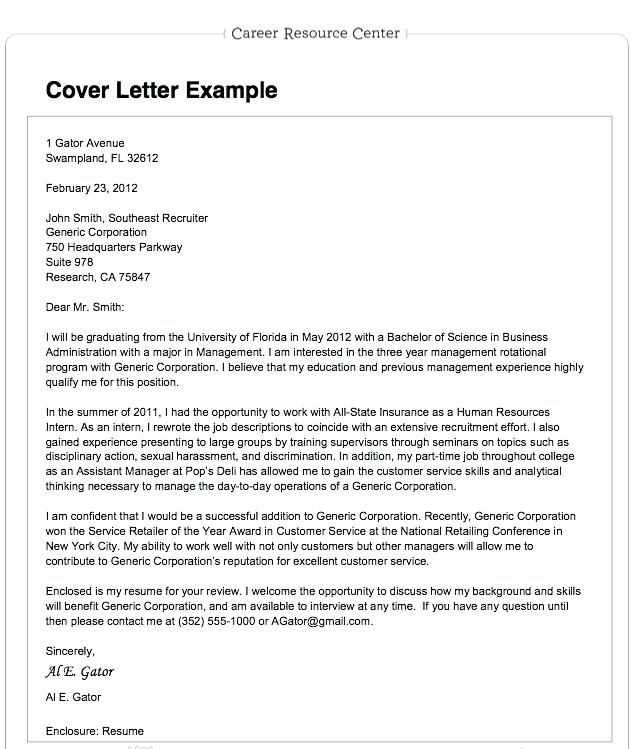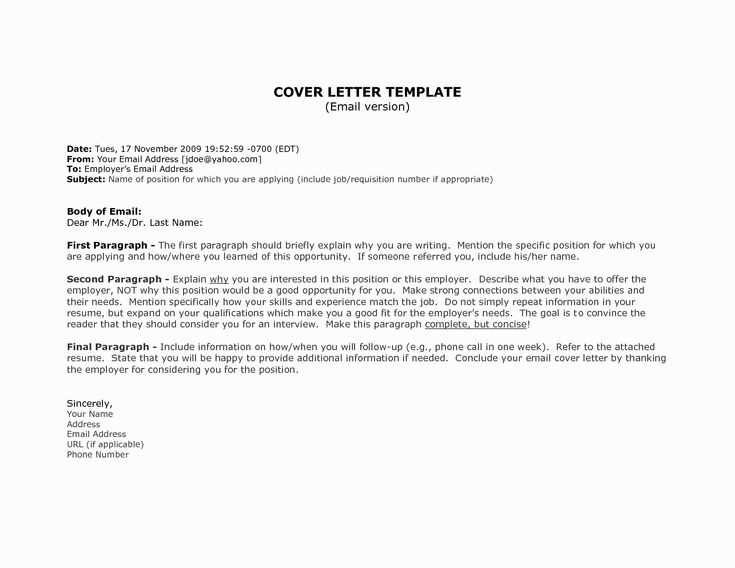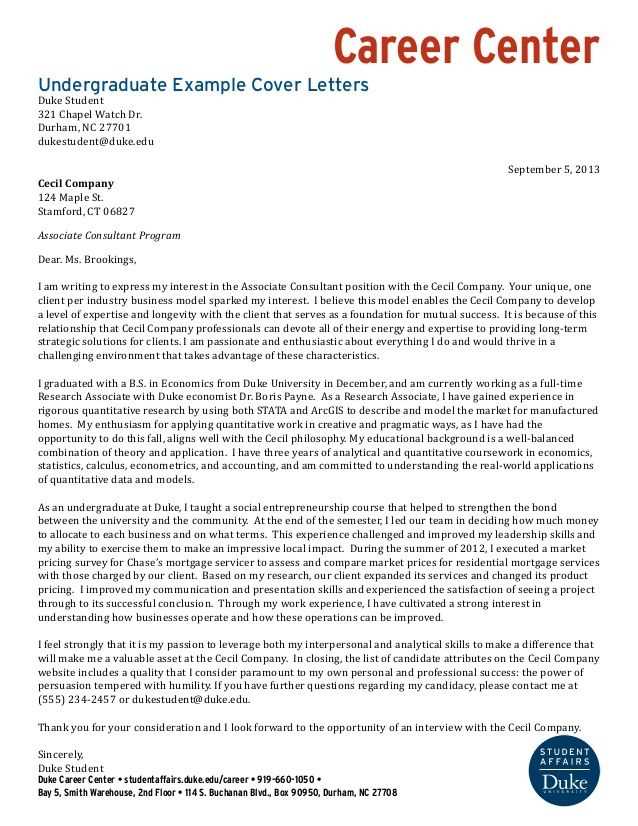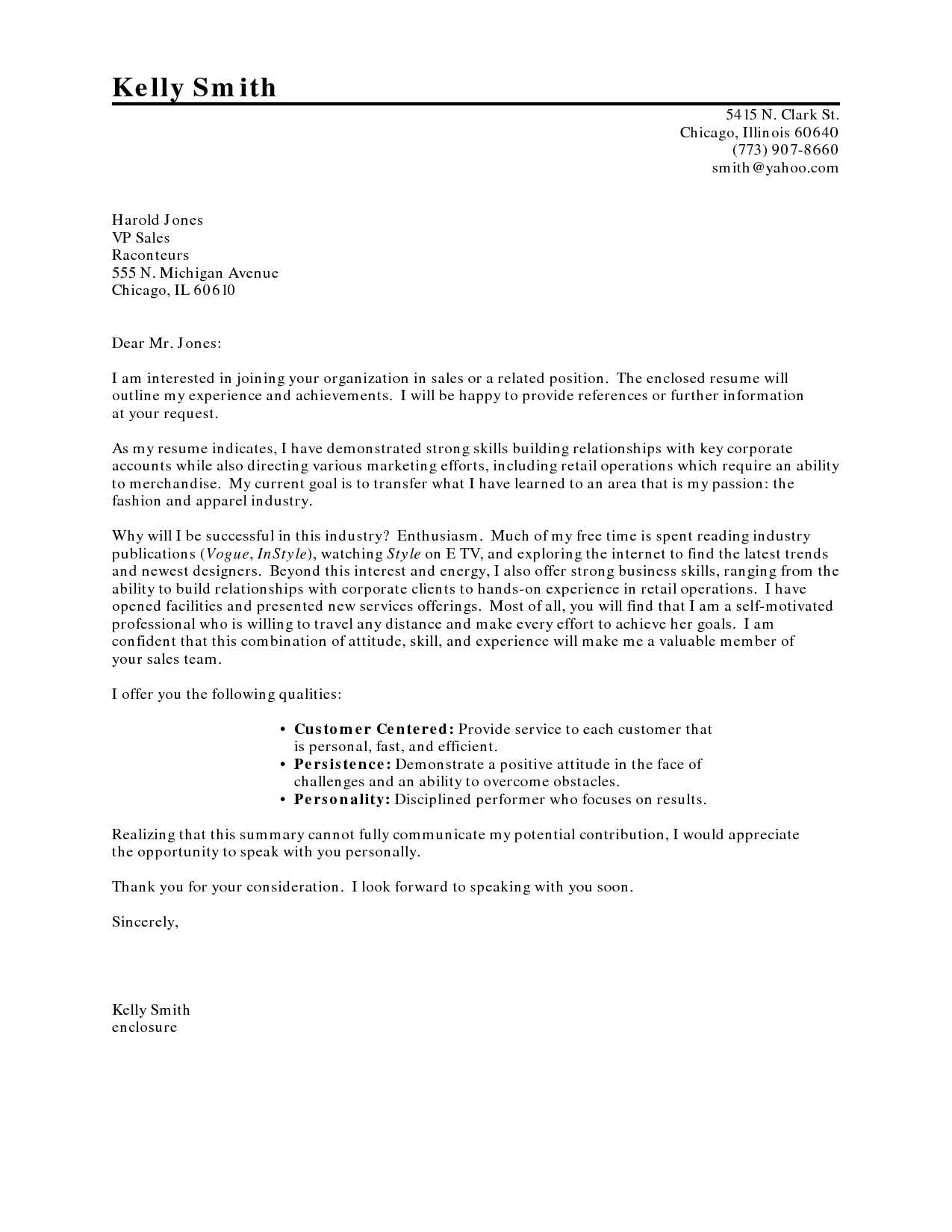Cover letter template for changing careers

When shifting careers, your cover letter should highlight transferable skills and demonstrate why you’re a strong fit for the role. Focus on what you’ve achieved in your current career and how those accomplishments are relevant to the new industry. Align your strengths with the job description and the company’s needs to show you understand their requirements and are ready to contribute immediately.
Start by introducing yourself and expressing enthusiasm for the position. Make sure to include a brief overview of your previous role, emphasizing the skills you developed that can be applied to the new field. Avoid just listing job titles–share specific experiences or projects that showcase your capabilities and results.
Use the body of the letter to explain your motivation for switching careers. Discuss what excites you about the new industry, and connect that enthusiasm with concrete examples of how your past experiences can benefit the employer. Be direct and clear about why you’re making the change, and ensure you convey confidence in your ability to adapt.
Conclude by thanking the reader for considering your application, and invite them to discuss how your unique background could bring value to the team. Close with a strong, actionable statement that reinforces your interest and readiness to take on the role.
Cover Letter Template for Changing Careers
Tailor your cover letter to highlight transferable skills and demonstrate why you’re a strong fit for the new role. Begin by addressing the hiring manager directly, using their name if available. Introduce yourself with a brief statement that connects your past experience to the job you are applying for. Be clear about your interest in making a career shift and explain the motivation behind it.
Highlight Transferable Skills

Focus on skills from your previous career that align with the job description. Even if your past job duties don’t directly relate to the new role, draw connections between your problem-solving abilities, leadership skills, and your capacity to learn quickly. Show how these traits will add value in the new industry. Emphasize accomplishments or projects that showcase your ability to adapt and succeed in unfamiliar environments.
Connect Your Motivation to the New Career
Share why you’re excited about moving into this new field. Your cover letter should explain how your personal values or long-term career goals align with the company’s mission or the industry’s demands. This is your chance to express enthusiasm and show that you are proactive in learning about the new role. Convince the reader that you’re committed to the transition and are eager to apply your expertise in a fresh context.
Highlight Transferable Skills in Your Cover Letter
Focus on how your past roles have equipped you with skills that are valuable in your new career. Use specific examples to show how your expertise in problem-solving, communication, or project management can be applied to the job you’re targeting. For instance, if you’ve managed teams or coordinated projects in a different field, highlight your ability to lead and organize, which is crucial in almost any industry.
Tailor your transferable skills to the job description. If the role emphasizes customer service, mention your experience in resolving customer issues or maintaining client relationships. Show how these skills can be applied to building strong rapport with clients in the new position.
Don’t just list skills–provide context. If you developed technical skills in one field, explain how those can be adapted to the technology or tools required in the new industry. This demonstrates not only that you have the right capabilities but that you understand the industry’s needs and challenges.
Lastly, be concise and avoid overloading the reader with irrelevant skills. Choose the ones most aligned with the job and demonstrate how they will contribute to your success in the role you’re applying for.
How to Demonstrate Passion for the New Field
Show your enthusiasm by sharing specific experiences that highlight your interest. Talk about relevant courses, personal projects, or volunteer work you’ve completed to build expertise in the field. Don’t just list skills–show how you’ve actively sought out opportunities to learn and grow within the area you’re pursuing.
Share Personal Motivations
Explain why you’re excited about the career change. Was there a specific event or a turning point that sparked your interest? Connect your personal motivations to the skills and goals of the new field. This makes your passion more relatable and genuine.
Highlight Industry Trends and Developments
Show your awareness of current trends, challenges, and opportunities within the field. Refer to recent news, technological advancements, or industry insights to demonstrate that you are actively keeping up-to-date and have a long-term commitment to the field.
Showcase Relevant Experience Despite the Career Shift
Highlight transferable skills from your previous roles. Focus on achievements that demonstrate abilities applicable to the new field. Think about tasks or projects you’ve completed that align with the requirements of your target role.
Identify Common Skills
- Leadership experience: Highlight team management, project coordination, or mentoring roles.
- Problem-solving: Showcase instances where you solved complex challenges, even if not directly related to the new field.
- Communication skills: Emphasize written and verbal communication, particularly in managing stakeholders or clients.
Show How Your Background Adds Value
- Tailor each example to match the job description. Use keywords that reflect the new industry.
- Quantify your impact. Include metrics, such as revenue growth, cost savings, or process improvements.
- Focus on adaptability. Demonstrate how you’ve successfully handled change or new challenges in the past.
In your cover letter, make it clear that while your career path may have shifted, the core skills remain strong and relevant. Employers appreciate candidates who can bring fresh perspectives while still applying proven expertise. Show that you’re prepared to contribute from day one.
Tailor Your Language to Fit the New Industry

Research the terminology commonly used in the industry you’re entering. Study job descriptions, company websites, and industry publications to identify key terms and phrases that are essential to the field. For instance, if transitioning into tech, familiarize yourself with phrases like “agile methodology” or “user experience” and incorporate them appropriately in your cover letter.
Reflect the skills that are most relevant to the new field. Instead of listing general abilities, highlight how your transferable skills apply to the industry’s demands. For example, emphasize problem-solving and team collaboration in a way that aligns with the expectations of your target role. This ensures your experience speaks the same language as your potential employer’s needs.
Adopt the tone and communication style of the industry. Some fields, like finance or law, may require a formal, precise writing style, while others, such as marketing or media, might appreciate a more creative or conversational approach. Adjust your cover letter’s tone accordingly, matching the industry’s communication preferences without losing your authentic voice.
Incorporate industry-specific achievements. Use examples of past successes that align with the challenges and objectives of the new sector. Quantify your results when possible, using figures or metrics that demonstrate the value you can bring, even if the context is different from your previous roles.
By tailoring your language this way, you bridge the gap between your past experiences and your future potential, showing that you understand the industry’s expectations and can contribute effectively from day one.
Ending Your Letter with Confidence and Enthusiasm
Conclude your cover letter by reinforcing your interest in the role and company. A strong closing statement highlights your eagerness and shows you’re committed to contributing to the team’s success. Mention your availability for an interview and express excitement about discussing how your skills align with the company’s needs.
Make a Lasting Impression

End with a sentence that reminds the reader of your enthusiasm for the opportunity. For example, “I’m excited to bring my experience to your team and discuss how I can support your goals.” A clear statement of eagerness leaves a positive, confident final impression.
Be Direct and Positive
Finish with a call to action. “I look forward to the possibility of contributing to your team” or “Thank you for your time and consideration; I am excited to discuss this further in an interview.” These phrases are simple, direct, and convey enthusiasm without being overly formal.
By ending your cover letter on a positive and proactive note, you show your readiness and enthusiasm for the role, making you a memorable candidate.